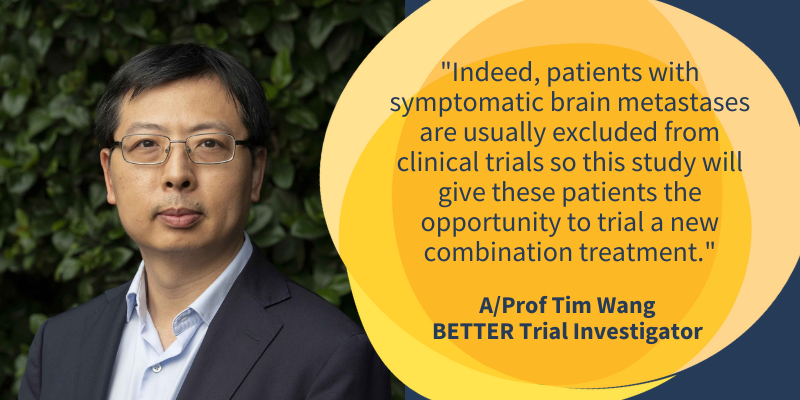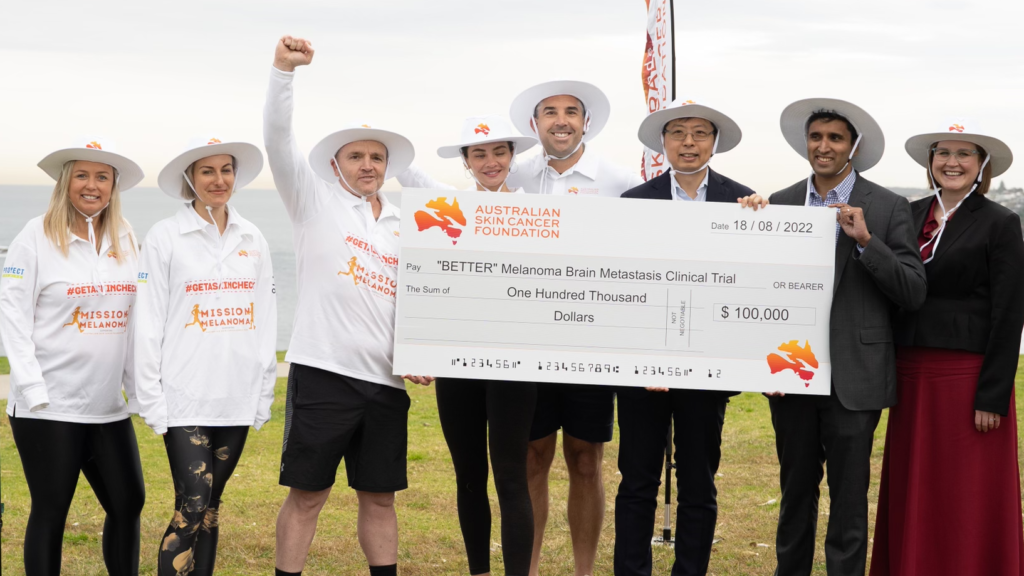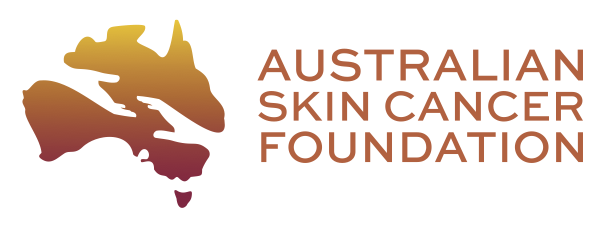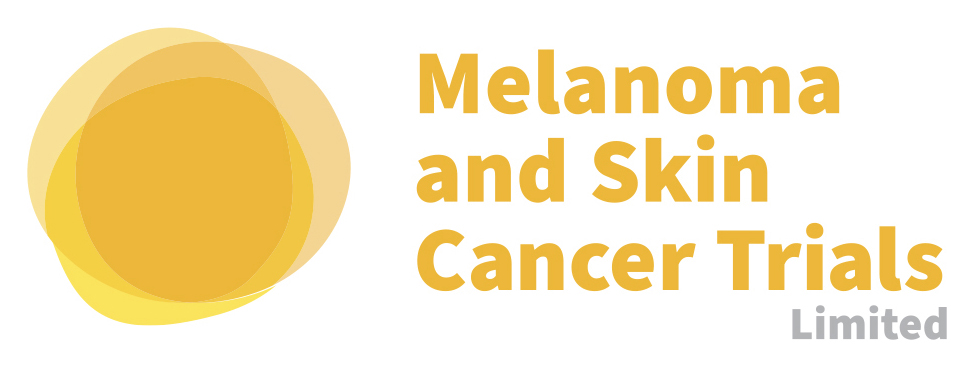A community fundraising campaign has donated $100,000 to support a clinical trial aimed at improving the care, treatment and quality of life for patients with melanoma that has spread to the brain.
Through the thousands of kilometres walked by 309 people all over Australia as part of the Australian Skin Cancer Foundation’s Mission Melanoma campaign, $100,000 has been donated to a clinical trial that will investigate a new treatment combination for patients with symptomatic melanoma brain metastases.
Once melanoma spreads to the brain, patients often have a poor prognosis and a short life expectancy, although advances in treatment – including those pioneered by Australian researchers – are providing real hope.
The BETTER trial, led by A/Prof Tim Wei Wang from Westmead Hospital and the University of Sydney, and Dr Malaka Ameratunga from the Alfred Hospital and Monash University, will focus on testing a new treatment combination in patients with symptomatic melanoma brain metastases.

A/Prof Wang said the BETTER trial would evaluate the safety, tolerability and efficacy of combining the immunotherapy drugs nivolumab and ipilimumab with bevacizumab and targeted radiotherapy in patients with melanoma brain metastases who have symptoms from their disease and are not suitable for surgical treatment.
“Treatment options for these patients are often limited and this condition is poorly represented in clinical research due to its severity and complexity,” A/Prof Wang said.
“Indeed, patients with symptomatic brain metastases are usually excluded from clinical trials so this study will give these patients the opportunity to trial a new combination treatment.”
“If the initial trial is successful, we hope to expand it into a larger trial supported by further funding. This will allow us to increase the number of patients who can participate in the research and open additional recruiting sites, as well as add more investigators from Australia and overseas to boost the trial.”
“As well as extending the patient’s life, this combination treatment may also improve quality of life by reducing the need for immune-suppressing steroids that have many side-effects and also by avoiding radionecrosis (localised areas of brain tissue damage following high dose radiation) from stereotactic radiotherapy,” A/Prof Wang said.
Now that the generous funding from the ASCF has been received, work on the Melanoma Brain Metastases Clinical Trial (known as the BETTER trial) will initially begin at the Westmead and Alfred Hospitals.
ASCF founder, Mr Jay Allen OAM, said the group was thrilled its first major fundraising initiative, which received 1,770 donations, has resulted in kickstarting research for a group of melanoma patients that are typically underrepresented.
“We will continue to raise funds for research until a cure can be found for all melanoma patients, and we also want to highlight the importance of regular skin checks,” Mr Allen said.
“Our aim is to stop melanoma in its tracks and one of the best ways we can do this is by raising funds to support the work of our brightest melanoma researchers.”
“Australia has some of the best cancer researchers in the world so we are very proud to be supporting this clinical trial, and we look forward to raising more funds to support melanoma research,” Mr Allen added.
Read more about the BETTER trial.





